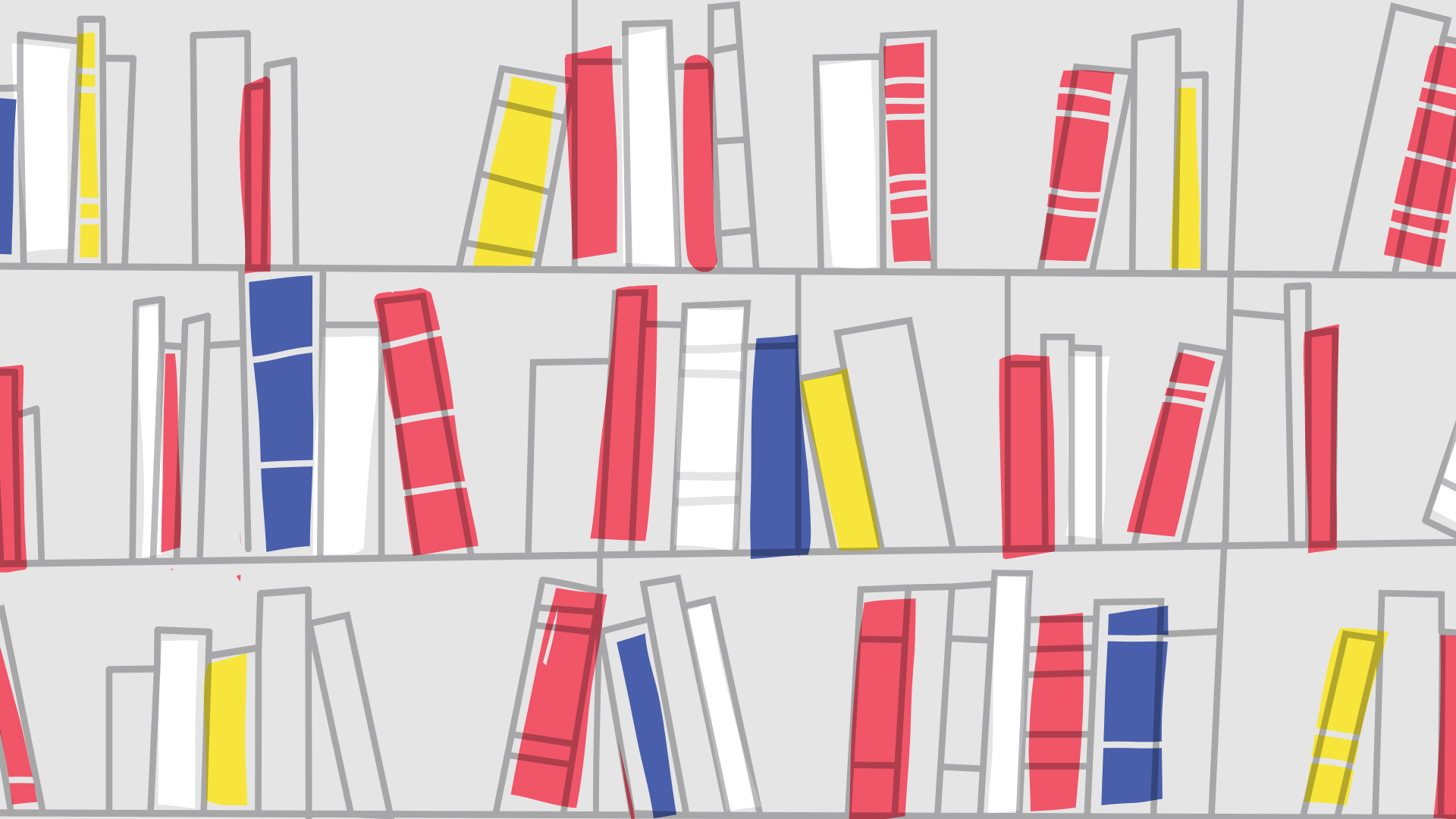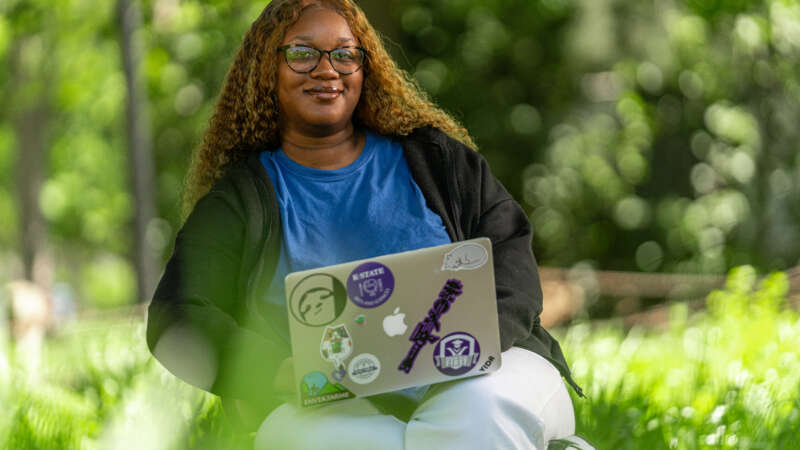From poetry to poli-sci, humanities coursework is fundamental for every K-State degree. Meet three innovators who make classic subjects speak to students louder than ever.
Immersed in poetry
Traci Brimhall is the poet laureate of Kansas. She is the director of K-State’s creative writing program and a university distinguished professor of English.
When we mention poetry, many of us flash back to our college days reading tons of Emily Dickinson. Is that a good thing?
Traci Brimhall: Many of us were done a great disservice by being taught that two roads diverged in a wood — and Robert Frost turned left. And then we had to write a five-paragraph essay about the importance of turning left. That’s an awful way to experience art!
How do you teach poetry today?
I do a lot of immersive experiences across disciplines. I’ve collaborated with landscape architecture and the art department, where students produce poetry broadsides for an art show. I try to make sure the things we make in class have a life beyond class.
How did you collaborate with landscape architecture?
We did a teaching swap, so a landscape architect came over to my poetry class. This was during my collaboration unit, where all the poems are built out of collaborative efforts so we learn what other people’s creative processes look like.
First the poetry students got to know their partners, and then we took a tour of campus. The landscape architect explained the plant baddies — all the poisonous, dangerous, mysterious, weird trees we have.
And then I went with the landscape class to the Konza Prairie and did a slow poetry walk. We would walk the Konza, then pause and read a poem. Then we’d write a few lines and walk some more, read a poem, write some more lines.
What do students get from that?
I see my creative classes as a kind of circuit training. You don’t want to work the same muscle group all the time. There are things that happen through an experience that I don’t think any lectures can do.
When you hear “poetry’s not useful,” how do you respond?
The same way I would to a student in class: I ask them to describe what makes something “useful.”
But I use poetry every day! This is the thing that makes me pay attention to the world. I know most of the facts I know because I read them in a poem, or I researched them to put in a poem. And that keeps me alive. It keeps my soul awake.
When homework goes digital
Mark Crosby is the director of K-State’s Digital Humanity Center. he is an associate professor of English and a fellow of the Society of Antiquaries.
How do digital humanities play out in today’s classes?
Mark Crosby: In the English department, we provide alternatives to the standard essay. Everyone in English has to write thesis-driven essays. People get very good at writing essays, but there are other venues, such as the digital environment, that students can use to explore their creativity.
Is it the extra creativity that gets students excited?
There’s another aspect. When students, particularly undergraduates, submit their essays and get them back, that’s the end of life for the essays. They’ll go in a drawer or folder — virtual or otherwise — and never see the light of day again.
For digital humanities projects, we post them on websites. They’re live on the internet. Generally, we find that this public impact incentivizes the students. They feel they are making an actual contribution that will be shared.
For your course on espionage, one student created a website analyzing sexpionage in Hitchcock films. What’s on that class syllabus?
The reading is mainly spy literature — from MI6 documents to short stories to James Bond. We also do Hitchcock movies like “The 39 Steps” and “North by Northwest.” One student’s digital humanities project looked at the old idea of the “honey trap,” a covert intelligence technique that uses seduction to manipulate people. Hitchcock almost always used blond female characters to do that.
Shareable knowledge seems more useful than yet another essay.
Yes, and students acquire a range of new skills that, in some cases, overlap with traditional computing skills. There’s programming, concept and design, understanding how databases work — specifics they can put on their CV.
When they graduate, they have a skill set they wouldn’t ordinarily get from humanities courses.
Learning from the greatest thinkers
Laurie Johnson is director of K-State’s Primary Texts Certificate program. She is the Swogger chair of Primary Texts and professor of political science.
How do you pitch the primary texts certificate to students today?
Laurie Johnson: Beyond getting a technical education in the field you’ve chosen, to be both a well-rounded person and a more successful person in that field requires you to be an interesting person. One who’s capable of conversing beyond your specialty, having intriguing ideas to share and understanding what others are really saying.
Those are the kinds of people who live richer lives and who tend to actually be more successful.
Your program focuses on history’s most influential thinkers (Galileo, Einstein and others) and students read their full, original works — not summaries. What’s the benefit of this unfiltered learning?
I tell them, “You will learn from the best!” You’re confronted with these texts and respond to them directly, rather than through an intermediary like a textbook or interpreter. This develops students’ analytical skills, so they become better thinkers, more critical thinkers, more creative thinkers.
Which text gets the biggest reaction?
Shakespeare, because a lot of students have never been exposed to him before. Dr. Shannon Skelton from the theater department teaches two weeks of that class. Students come in with an attitude of “Oh no. This is going to be either too hard or too boring.” Then Dr. Skelton turns Shakespeare into this really cool thing. They read it, they watch it, they’re talking about it — it’s pretty amazing.
Any other surprises?
The Platonic dialogues is the same story. Students go in thinking “Oh, my gosh. I have to trudge through this.” They’ve heard that Plato’s going to be hard and abstract and boring.
But it’s full of humor, and it’s very relatable. It’s about everyday experiences, so everybody can get sucked into it. These great thinkers were talking about the same things we care about now.




